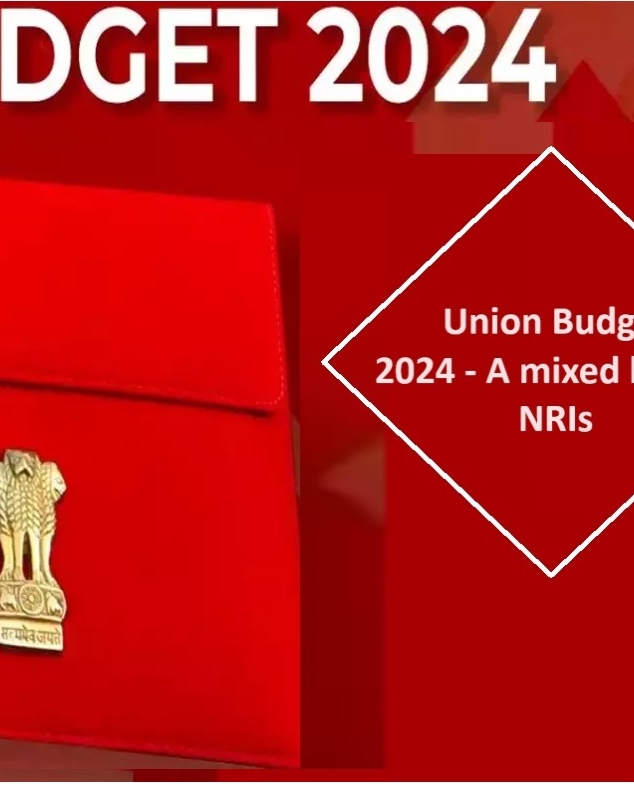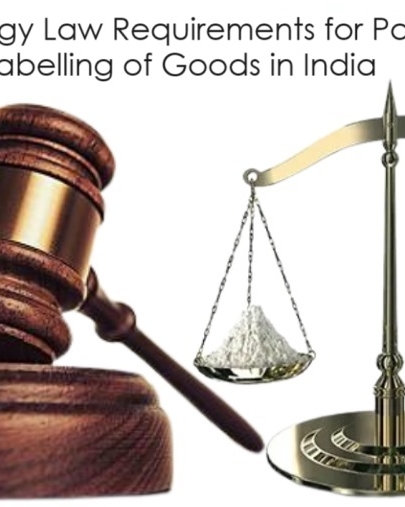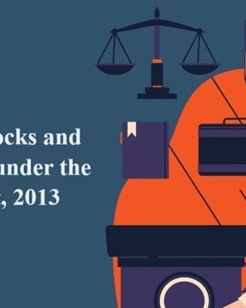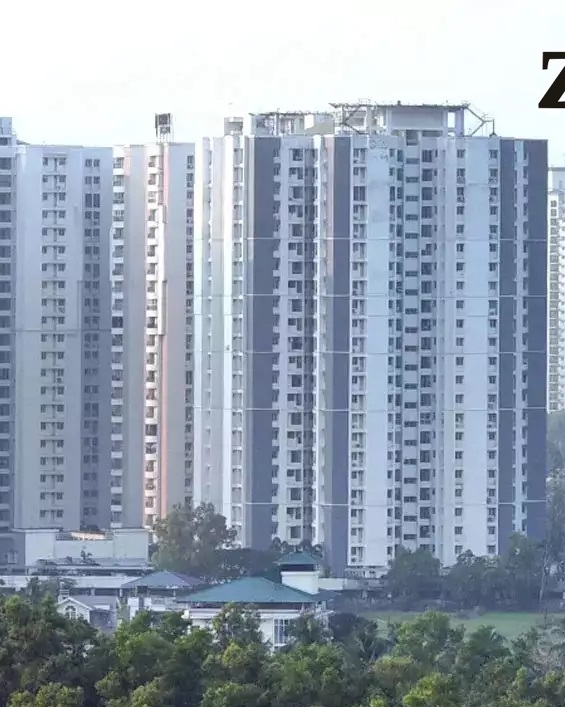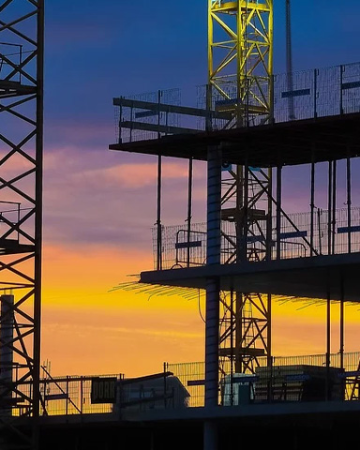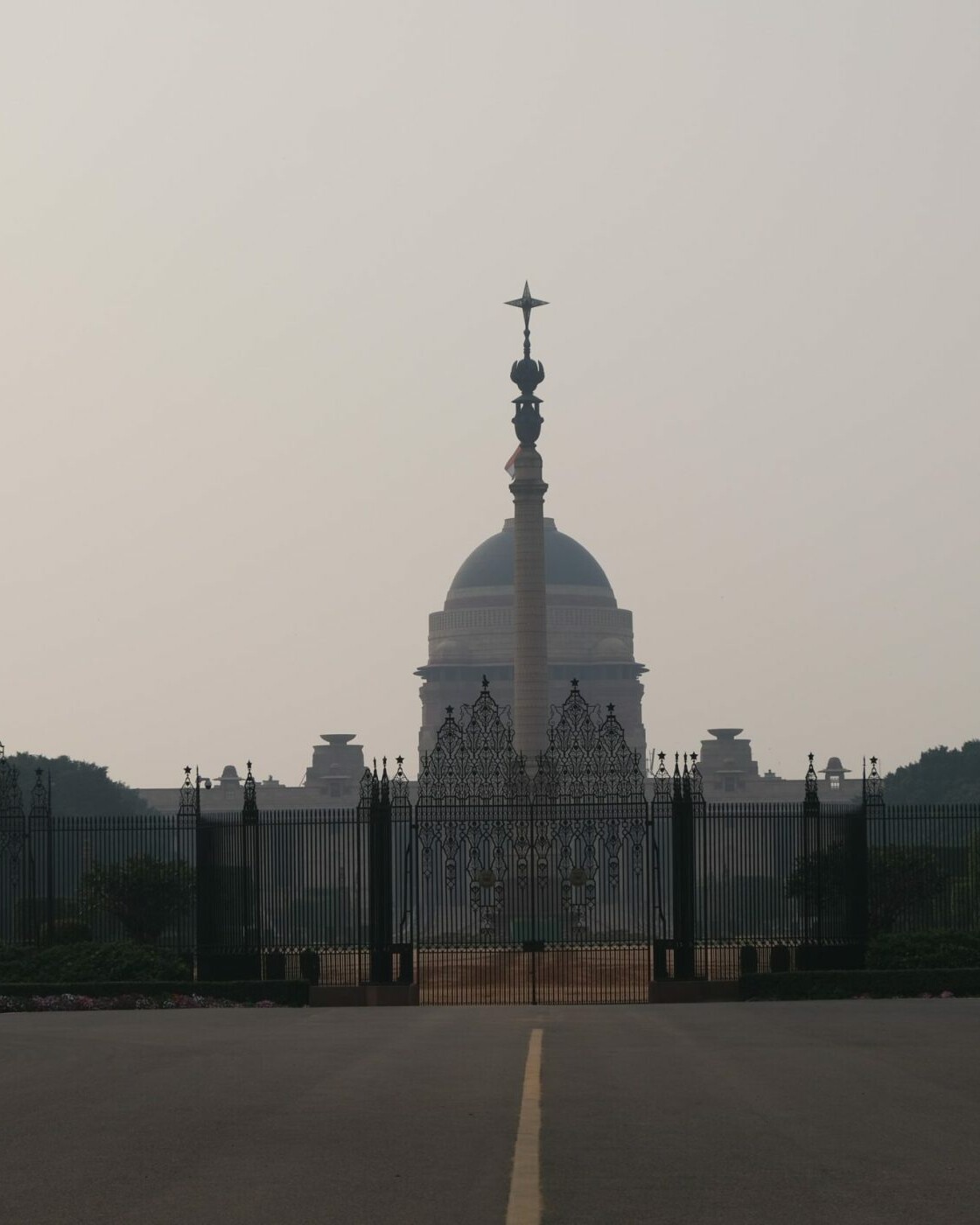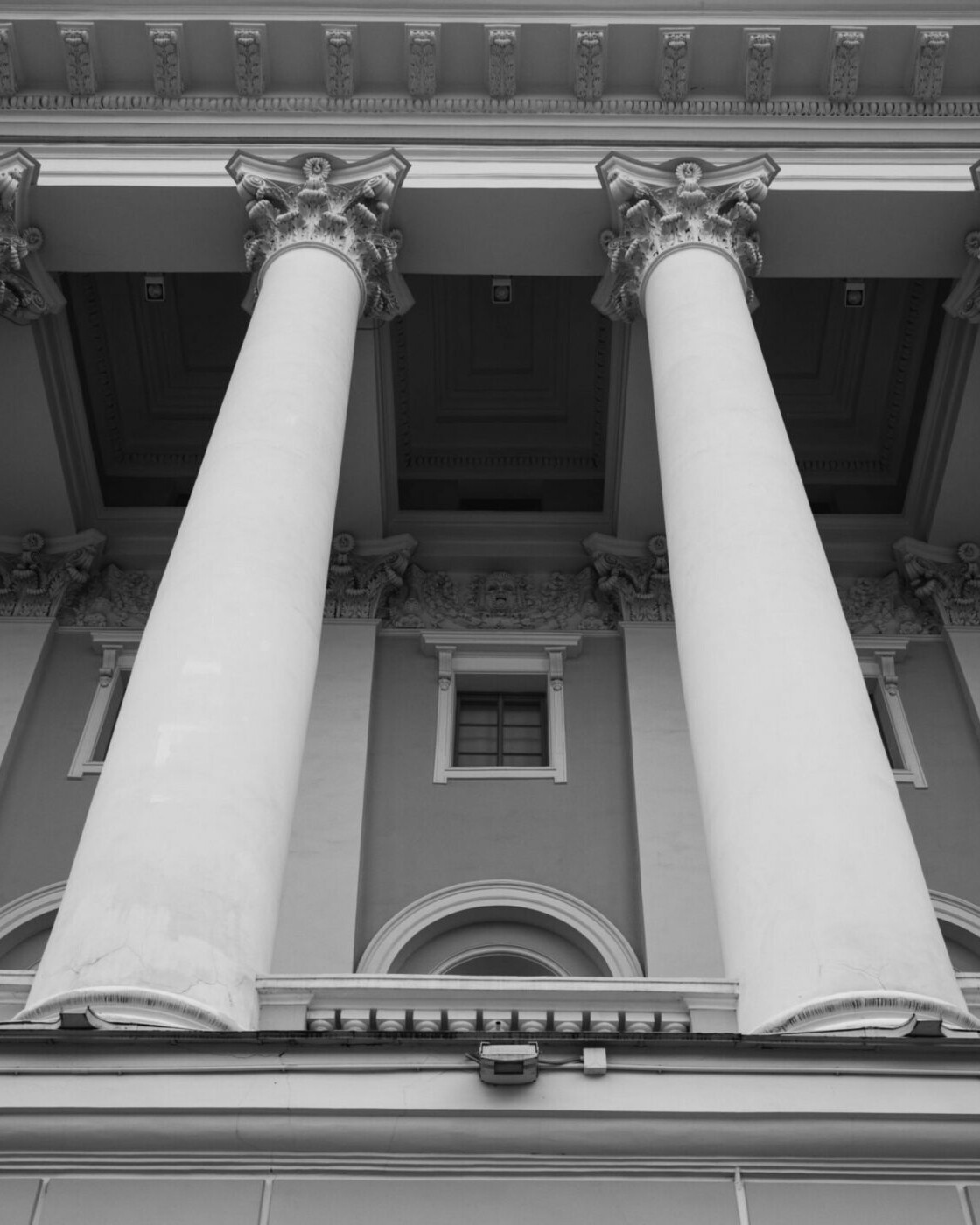Author: Vishnu Anand, Partner, and Naman Dutt, Associate, at ZEUS Law
Published in LiveLaw
The Consumer Protection Act, 2019 (hereinafter referred to as the “Act”) which has replaced the erstwhile Consumer Protection Act, 1986, ensures a summary and speedy disposal of all consumer disputes. Under the Act, a Consumer can file a complaint depending upon the value of goods and services before the Commissions established under the Act as hereunder:
- before the District Consumer Disputes Redressal Commission (hereinafter referred to as the “District Commission”), where the value of goods or services paid as consideration does not exceed Rs.1,00,00,000/- (Rupees One Crores Only);
- before the State Consumer Disputes Redressal Commission (hereinafter referred to as the State Commission”), where the value of goods or services paid as consideration exceeds Rs.1,00,00,000/- (Rupees One Crores Only) and less than Rs.10,00,00,000/- (Rupees Ten Crores Only); and
- before the National Consumer Disputes Redressal Commission (hereinafter referred to as the “National Commission”), where the value of goods or services paid as consideration exceeds Rs.10,00,00,000/- (Rupees Ten Crores Only).
Thereafter, in order to reduce the workload of the District Commission and State Commission, the Consumer Protection (Jurisdiction of the District Commission, the State Commission, and the National Commission) Rules, 2021 were notified, vide which, the pecuniary jurisdiction of above-mentioned commission were revised as follows:
- before the District Commission: value of goods or services paid as consideration does not exceed Rs.50,00,000/- (Rupees Fifty Lacs Only);
- before the State Commission: value of goods or services paid as consideration exceeds Rs.50,00,000/- (Rupees Fifty Lacs Only) but less than Rs.2,00,00,000/- (Rupees Two Crores Only);
- before the National Commission: value of goods or services paid as consideration exceeds Rs.2,00,00,000/- (Rupees Two Crores Only).
The Act provides for detailed provisions concerning filing of Complaints before the above-mentioned Commissions and for Appeals against the Judgement passed by these Commissions. As per the Act for any action under the original jurisdiction, the Judgement passed by the District Commission can be challenged before the State Commission, the Judgement passed by the State Commission can be challenged before the National Commission, and the Judgement of the National Commission, in original jurisdiction, can be challenged before the Hon’ble Supreme Court of India. However, the Act is silent with regard to the Appeal mechanism against the Judgement passed by the National Commission in its Appellate Jurisdiction. As the Act is silent on this issue, various petitions were filed before the Hon’ble Supreme Court, against the Judgement by the National Commission in the exercise of its Appellate Jurisdiction.
This question was first dealt by the Hon’ble Supreme Court of India in Ibrat Faizan v. Omaxe Buildhome Private Limited [2022 SCC OnLine SC 620], when an Appeal was filed by the Appellants against the order of the High Court of Delhi, which had entertained a petition under Article 227 of the Constitution of India. The Hon’ble Supreme Court had while dealing with the question of maintainability of a petition under Article 227 of the Constitution of India against the Judgement of the National Commission, held that a party can approach the ’concerned’ High Court under Article 227 of the Constitution of India, against the Judgement passed by the National Commission in its Appellate jurisdiction. The relevant extract from the Judgement is as follows:
“20.It is not in dispute that in the present case, the appeal before the National Commission was against the order passed by the State Commission under Section 47(1)(a) of the 2019 Act. Therefore, against the order passed by the State Commission passed in a complaint in exercise of its powers conferred under Section 47(1)(a) of the 2019 Act, an appeal to the National Commission was maintainable, as provided under Section 58(1)(a)(iii) of the 2019 Act. As per Section 67 of the 2019 Act, any person, aggrieved by an order made by the National Commission of its powers conferred by sub-clause (i) or (ii) of clause (a) of sub-section (1) of Section 58, may prefer an appeal against such order to the Supreme Court. Therefore, an appeal against the order passed by the National Commission to this Court would be maintainable only in case the order is passed by the National Commission in exercise of its powers conferred under Section 58(1)(a)(i) or under Section 58(1)(a)(ii) of the 2019 Act. No further appeal to this Court is provided against the order passed by the National Commission in exercise of its powers conferred under Section 58(1)(a)(iii) or under Section 58(1)(a)(iv) of the 2019 Act. In that view of the matter, the remedy which may be available to the aggrieved party against the order passed by the National Commission in an appeal under Section 58(1)(a)(iii) or Section 58(1)(a)(iv) would be to approach the concerned High Court having jurisdiction under Article 227 of the Constitution of India.
Thereafter, the Hon’ble Supreme Court, in Universal Sompo General Insurance Co. Ltd. v. Suresh Chand Jain [2023 SCC OnLine SC 877], observed that any party aggrieved by any Judgement passed by the National Commission in its Appellate Jurisdiction can approach the ‘jurisdictional’ High Court under Article 226 and / or Article 227 of the Constitution. The relevant extract of the Judgement is as follows:
“24. …The question of law of general public importance or a decision which shocks the conscience of the Court are some of the prime requisites for the grant of special leave. The provisions of Article 136 of the Constitution as such are not circumscribed by any limitation. But when the party aggrieved has alternative remedy to go before the High Court, invoking its writ jurisdiction or supervisory jurisdiction as the case may be, this Court should not entertain petition seeking special leave thereby short-circuit the legal procedure prescribed. The limitation, whatever, they be are implicit in the nature and character of the power itself. It being an exceptional and overriding power, naturally it has to be exercised sparingly and with caution and only in very exceptional situations. The power will only be used to advance the cause of justice and its exercise will be governed by well-established principles which govern the exercise of overriding constitutional powers.…
- In the aforesaid view of the matter, we have reached to the conclusion that we should not adjudicate this petition on merits. We must ask the petitioner herein to first go before the jurisdictional High Court either by way of a writ application under Article 226 of the Constitution or by invoking the supervisory jurisdiction of the jurisdictional High Court under Article 227 of the Constitution. Of course, after the High Court adjudicates and passes a final order, it is always open for either of the parties to thereafter come before this Court by filing special leave petition, seeking leave to appeal under Article 136 of the Constitution.”
While passing the judgement in Universal Sompo (Supra), the Hon’ble Supreme Court, relied on the coordinate bench judgement in Ibrat Faizan (Supra) and the seven-judge constitutional bench judgement in L. Chandra Kumar v. Union of India [(1997) 3 SCC 261].
The law laid down by the Hon’ble Supreme Court in both Ibrat Faizan (Supra) and Universal Sompo (Supra) are riddled with uncertainty with respect to which High Court shall be the “jurisdictional” or “concerned” High Court; whether it would be the High Court within whose jurisdiction the National Commission is situated or within whose jurisdiction the original Judgement was passed by the consumer forum of first instance. Thus, the judicial conundrum births.
VIEW I: HIGH COURT WHERE THE APPELLATE TRIBUNAL IS SITUATED
In 1995, the Hon’ble Supreme Court in L. Chandra Kumar (Supra) while dealing with the jurisdiction of the High Courts over the Tribunals created under Article 323-A and Article 323-B of the Constitution of India, held that the High Court within whose jurisdiction such Tribunal(s) are in shall have the jurisdiction over the decisions of the Tribunal(s), and thus, establishing the territorial jurisdiction of the High Courts over the Tribunal(s). The relevant extract is as follows:
“99. In view of the reasoning adopted by us, we hold that clause 2(d) of Article 323-A and clause 3(d) of Article 323-B, to the extent they exclude the jurisdiction of the High Courts and the Supreme Court under Articles 226/227 and 32 of the Constitution, are unconstitutional. Section 28 of the Act and the “exclusion of jurisdiction” clauses in all other legislations enacted under the aegis of Articles 323-A and 323-B would, to the same extent, be unconstitutional. The jurisdiction conferred upon the High Courts under Articles 226/227 and upon the Supreme Court under Article 32 of the Constitution is a part of the inviolable basic structure of our Constitution. While this jurisdiction cannot be ousted, other courts and Tribunals may perform a supplemental role in discharging the powers conferred by Articles 226/227 and 32 of the Constitution. The Tribunals created under Article 323-A and Article 323-B of the Constitution are possessed of the competence to test the constitutional validity of statutory provisions and rules. All decisions of these Tribunals will, however, be subject to scrutiny before a Division Bench of the High Court within whose jurisdiction the Tribunal concerned falls. The Tribunals will, nevertheless, continue to act like courts of first instance in respect of the areas of law for which they have been constituted. It will not, therefore, be open for litigants to directly approach the High Courts even in cases where they question the vires of statutory legislations (except where the legislation which creates the particular Tribunal is challenged) by overlooking the jurisdiction of the Tribunal concerned. Section 5(6) of the Act is valid and constitutional and is to be interpreted in the manner we have indicated.”
The Article 226 and Article 227 of the Constitution of India both uphold the principle of the territorial jurisdiction of the High Courts. The relevant extracts of the Articles are as follows:
- Article 226 states that, ‘Every High Court shall have power, throughout the territories in relation to which it exercises jurisdiction, to issue to any person or authority, including in appropriate cases, any Government, within those territories directions, orders or writs, including [writs in the nature of habeas corpus, mandamus, prohibition, quo warranto and certiorari, or any of them, for the enforcement of any of the rights conferred by Part III and for any other purpose.’;
- Article 227 states that, ‘Every High Court shall have superintendence over all courts and tribunals throughout the territories in relation to which it exercises jurisdiction.’.
Therefore, in view of the Judgement of the seven-judge constitutional bench in L. Chandra Kumar (Supra), and Articles 226 and 227 of the Constitution of India, it emerges that the High Court of Delhi is the ‘jurisdictional’ High Court with regard to the Judgement passed the National Commission in appellate jurisdiction, as the National Commission, is situated with the territorial jurisdiction of High Court of Delhi.
The Hon’ble Supreme Court while dealing with a similar question in Union of India v. Alapan Bandyopadhyay [(2022) 3 SCC 133] held that:
“38. When once a Constitution Bench of this Court declared the law that “all decisions of Tribunals created under Article 323-A and Article 323-B of the Constitution will be subject to the scrutiny before a Division Bench of the High Court within whose jurisdiction the Tribunal concerned falls”, it is impermissible to make any further construction on the said issue. The expression “all decisions of these Tribunals” used by the Constitution Bench will cover and take within its sweep orders passed on applications or otherwise in the matter of transfer of original applications from one Bench of the Tribunal to another Bench of the Tribunal in exercise of the power under Section 25 of the Act.
- In other words, any decision of such a Tribunal, including the one passed under Section 25 of the Act could be subjected to scrutiny only before a Division Bench of a High Court within whose jurisdiction the Tribunal concerned falls. This unambiguous exposition of law has to be followed scrupulously while deciding the jurisdictional High Court for the purpose of bringing in challenge against an order of transfer of an original application from one Bench of Tribunal to another Bench in the invocation of Section 25 of the Act.
- The law thus declared by the Constitution Bench cannot be revisited by a Bench of lesser quorum or for that matter by the High Courts by looking into the bundle of facts to ascertain whether they would confer territorial jurisdiction to the High Court within the ambit of Article 226(2) of the Constitution. We are of the considered view that taking another view would undoubtedly result in indefiniteness and multiplicity in the matter of jurisdiction in situations when a decision passed under Section 25 of the Act is to be called in question especially in cases involving multiple parties residing within the jurisdiction of different High Courts albeit aggrieved by one common order passed by the Chairman at the Principal Bench at New Delhi.
- The undisputed and indisputable position in this case is that the WPCT No. 78 of 2021 was filed to challenge the order dated 22-10-2021 in Personnel, Public Grievances and Pensions v. Alapan Bandyopadhyay [Personnel, Public Grievances and Pensions v. Alapan Bandyopadhyay, 2021 SCC OnLine CAT 3242] of the Central Administrative Tribunal, Principal Bench at New Delhi, (by the Chairman of the Tribunal in exercise of the power under Section 25 of the Act sitting at the Principal Bench) transferring OA No. 1619 of 2021 to its files. On applying the said factual position to the legal exposition in L. Chandra Kumar case [L. Chandra Kumar v. Union of India, (1997) 3 SCC 261: 1997 SCC (L&S) 577] it is crystal clear that the Principal Bench of the Central Administrative Tribunal at New Delhi, which passed the order transferring OA No. 1619 of 2021 vide order in Personnel, Public Grievances and Pensions v. Alapan Bandyopadhyay [Personnel, Public Grievances and Pensions v. Alapan Bandyopadhyay, 2021 SCC OnLine CAT 3242] falls within the territorial jurisdiction of the High Court of Delhi at New Delhi.”
In view of the ratio laid down by the Hon’ble Supreme Court in L. Chandra Kumar (Supra) and Alapan Bandyopadhyay (Supra), it can be said that the High Court exercising territorial jurisdiction over the Tribunal concerned would be appropriate concerned/jurisdictional High Court.
VIEW II: THE HIGH COURT WHERE THE ORIGINAL TRIBUNAL IS SITUATED
The Hon’ble Supreme Court in L. Chandra Kumar (Supra) establishes the authority of a High Court over a Tribunal within its jurisdiction, it does not expand as to which High Court can exercise jurisdiction where the cause of action arises in multiple jurisdictions. For instance, in a case where the original complaint was filed in consumer forum of one state and the National Commission is situated in another state.
In 2007, the Hon’ble Supreme Court of India in Ambica Industries v. CCE [(2007) 6 SCC 769] while entertaining this question held that when a Tribunal is exercising its jurisdiction over multiple tribunals in different state, herein akin to the National Commission, then the High Court where the action at first instance was taken or the order was passed in its original jurisdiction, shall have the jurisdiction to entertain petitions under Article 226 and Article 227 of the Constitution of India, i.e. the High Court where the consumer forum of first instance is situated. In Ambica Industries (Supra), the Hon’ble Supreme Court dealt with the jurisdiction of the Hon’ble High Court of Delhi over the Judgements passed by the CESTAT, New Delhi, in its Appellate jurisdiction. The relevant extract is as follows:
“13. The Tribunal, as noticed hereinbefore, exercises jurisdiction over all the three States. In all the three States there are High Courts. In the event, the aggrieved person is treated to be the dominus litis, as a result whereof, he elects to file the appeal before one or the other High Court, the decision of the High Court shall be binding only on the authorities which are within its jurisdiction. It will only be of persuasive value on the authorities functioning under a different jurisdiction. If the binding authority of a High Court does not extend beyond its territorial jurisdiction and the decision of one High Court would not be a binding precedent for other High Courts or courts or tribunals outside its territorial jurisdiction, some sort of judicial anarchy shall come into play. An assessee, affected by an order of assessment made at Bombay, may invoke the jurisdiction of the Allahabad High Court to take advantage of the law laid down by it and which might suit him and thus he would be able to successfully evade the law laid down by the High Court at Bombay.
- There cannot be any doubt whatsoever that in terms of Article 227 of the Constitution of India as also Clause (2) of Article 226 thereof, the High Court would exercise its discretionary jurisdiction as also power to issue writ of certiorari in respect of the orders passed by the subordinate courts within its territorial jurisdiction or if any cause of action has arisen therewithin but the same tests cannot be applied when the appellate court exercises a jurisdiction over a tribunal situated in more than one State. In such a situation, in our opinion, the High Court situated in the State where the first court is located should be considered to be the appropriate Appellate Authority. The Code of Civil Procedure did not contemplate such a situation. It provides for jurisdiction of each court. Even a District Judge must exercise its jurisdiction only within the territorial limits of a State. It is inconceivable under the Code of Civil Procedure that the jurisdiction of the District Court would be exercisable beyond the territorial jurisdiction of the district, save and except in such matters where the law specifically provides therefor.”
The ratio of Ambica Industries (Supra) was thereafter followed by the Hon’ble Supreme Court in Calcutta Gujarati Education Society v. Provident Fund Commr. [(2020) 19 SCC 380] in 2020, while dealing with the jurisdiction of the High Court over the appellate tribunal of the Employees Provident Fund.
Thus, in view the judgements passed by the Hon’ble Supreme Court in Ambica Industries (Supra) and Calcutta Gujarati (Supra), when a Tribunal exercises jurisdiction over more than one State, then the High Court within whose jurisdiction original action of first instance was taken shall be the concerned jurisdictional High Court.
THE CONUNDRUM CONTINUES
The Hon’ble Supreme Court has delivered the judgements in Ambica Industries (Supra) and Calcutta Gujarati (Supra) in ignorance of the ratio laid down in the constitutional seven-judge bench in L. Chandra Kumar (Supra) which squarely application applied to the question of law being considered, thus, it seems that the former judgements were delivered per ignorantiam. Furthermore, the Hon’ble Supreme Court in Ibrat Faizan (Supra) and Universal Sompo (Supra) rely on the judgement in L. Chandra Kumar (Supra), therefore, creating a grey area for judicial interpretation by the High Courts.
In 2023, the Hon’ble Supreme Court in Union of India Vs. Sanjiv Chaturvedi [(2023) 5 SCC 706], observed that in view of the judgements passed in L. Chandra (Supra), Alapan Bandyopadhyay (Supra), and the issue involved with respect to the territorial jurisdiction of the High Court, the matter should be considered by a larger bench of the Hon’ble Supreme Court.
Despite different views of the Hon’ble Supreme Court in the above-mentioned judgements, and the apparent silence on the appropriate ‘jurisdictional’’ or ‘concerned’ High Court is, the conundrum continues. In the absence of any clear observation by the Hon’ble Supreme Court of India, the conundrum shall persist. The question with regard to the ‘jurisdictional’’ or ‘concerned’ High Court for the purposes of maintainability of petitions under Article 226 and / or Article 227 against the Judgement of the National Commission, is required to be addressed by the Hon’ble Supreme Court of India.
In the midst of the above judicial precedents, the Hon’ble High Court of Delhi has been entertaining the petitions under Article 226 and Article 227 against the Judgement of the National Commission in Appellate jurisdiction, in various cases i.e. Sarnath Finance Limited vs. Rakesh Kumar [2023 SCC OnLine Del 2016], TDI Infrastructure Limited vs. Sukhpal Singh Bhullar [2023 SCC OnLine Del 7958], Manjeet Singh vs. TATA AIG General Insurance Co. Ltd. [2023 SCC OnLine Del 8069] and Aarcity Builders (P) Ltd. vs. Subhash Sharma [2022 SCC OnLine Del 4914].
The need for a clear mechanism for adjudication of Appeals against the Judgement of the National Commission in Appellate jurisdiction has now become the need for the hour, with the question of what the ‘jurisdictional’ and ‘concern
*****







